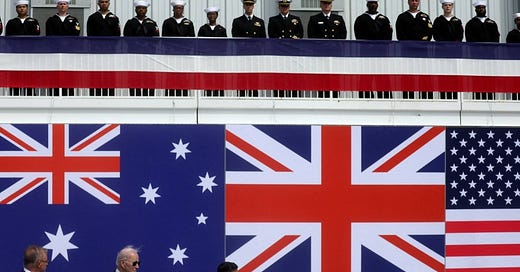AUKUS Expands
New Zealand has stepped up its interest in joining the non-nuclear pillar of Aukus, The U.S. has kicked off talks with Britain and Australia on inviting Japan to collaborate on defense technology
UPDATES: New Zealand's foreign and defense ministers met with their Australian counterparts to discuss foreign policy and security, with a focus on the Indo-Pacific. In a joint press conference, defence minister Marles announced an Australian delegation would travel to New Zealand “very shortly” to brief officials on the second pillar of the Aukus pact …





